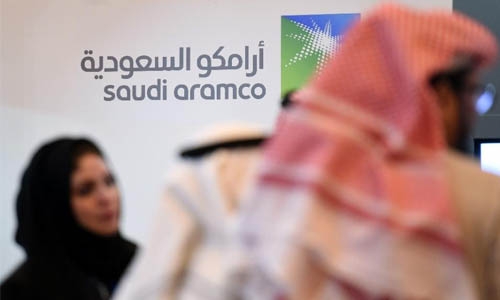Saudi Aramco CEO sees year-end oil price recovery
Global crude prices should recover near the end of this year, the president of the world's biggest oil exporter, Saudi Aramco, said on Tuesday.
"Our prediction is that we will see some adjustment but it will happen toward the end of this year," Amin al-Nasser, president and chief executive officer of the state-owned company, told a business forum in the Saudi capital.
Global crude prices have plunged from above $100 a barrel in early 2014 to below $31 a barrel on Tuesday.
"I think with low oil prices, demand will hopefully also increase... and as such the gap between supply and demand will start closing," Nasser told the Global Competitiveness Forum organised by the Saudi Arabian General Investment Authority (SAGIA).
Nasser said prices will not return to the $100 level, but "it will definitely be better than what we are seeing today".
The price drop led oil-dependent Saudi Arabia to impose unprecedented cuts in its 2016 budget and to push economic diversification.
Authorities are even considering a share listing of Aramco.
The company's chairman, Khalid al-Falih, told the same forum on Monday that Aramco was maintaining investments in oil and gas despite cutting costs in other ways to cope with plummeting crude prices.
Saudi Arabia and other members of the Organization of the Petroleum Exporting Countries have refused to reduce crude output as they seek to drive less-competitive players, including US shale producers, out of the market.
A SAGIA official, Abdulmohsen al-Majnouni, told AFP that the kingdom had already been working towards economic diversification even before the dramatic oil price drop.
"But we could have maybe done a better job," he said.
Deputy Crown Prince Mohammed bin Salman, who heads the main economic affairs council, "is really keen to make this happen", Majnouni said in an interview.
The kingdom is currently focused on three main sectors: transportation, including the $22.5-billion Riyadh metro system; healthcare; and industrial parts and equipment for the kingdom's major corporations including Saudi Aramco, petrochemicals giant SABIC and the Saudi Arabian Mining company, Ma'aden.
Other sectors are also being looked at, such as paints and coatings to serve the kingdom's demand for housing, electrical generation and desalination of water for the desert nation, Majnouni said.
He said SAGIA identified six major investment barriers including the length of time to start a business, and "a major challenge" with cross-border shipment of goods.
"We're working together to overcome this," he said.
An oil industry expert, who asked not to be named, told AFP on Monday that despite high-level talk of diversification, a lack of skills and training is hindering the process.
But Majnouni said the kingdom has set up more than 100 "colleges of excellence" to address specific technical training needs.
He said that over the next five years the skills of members of the workforce "will hopefully be improved".
Related Posts

